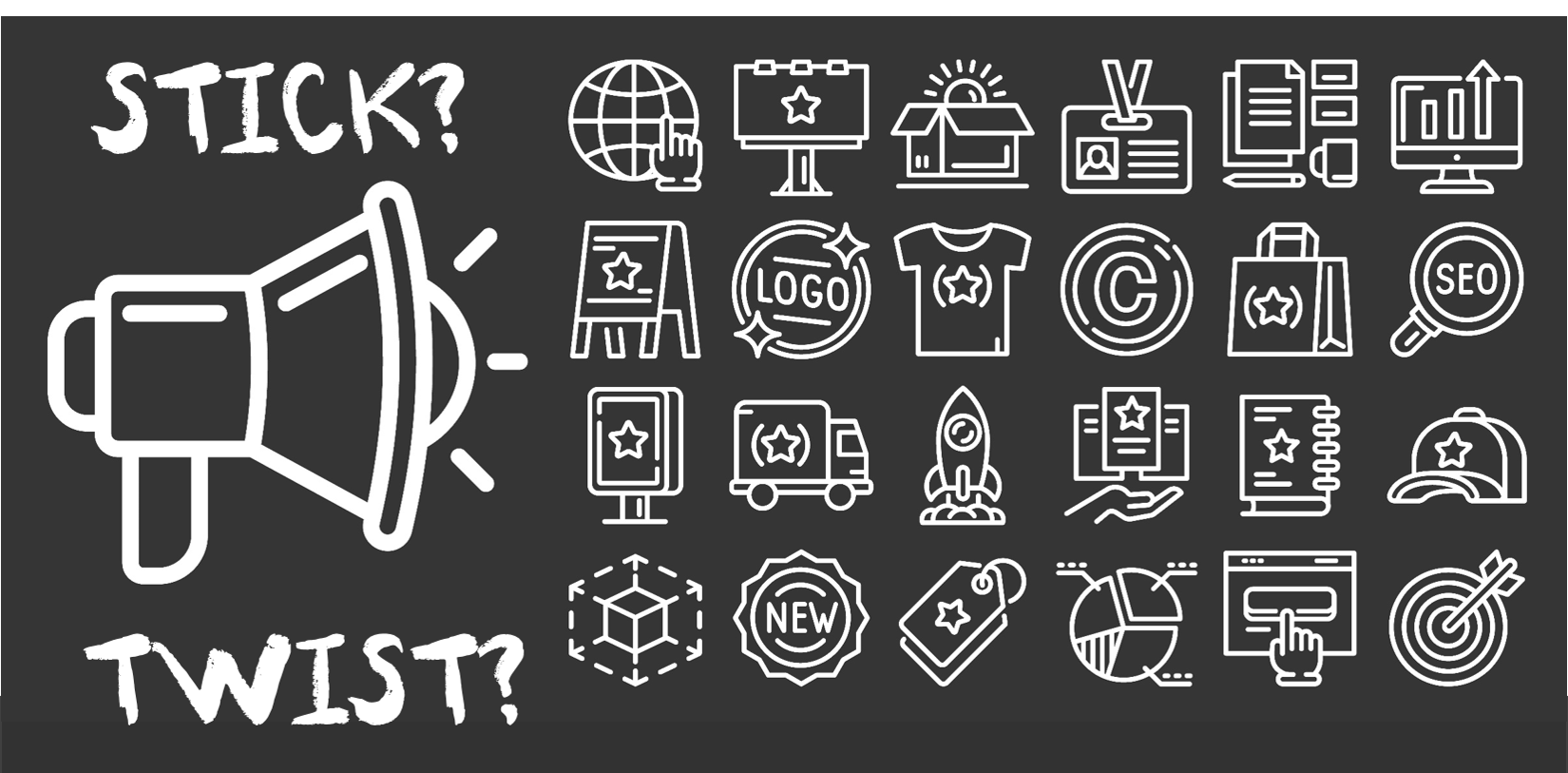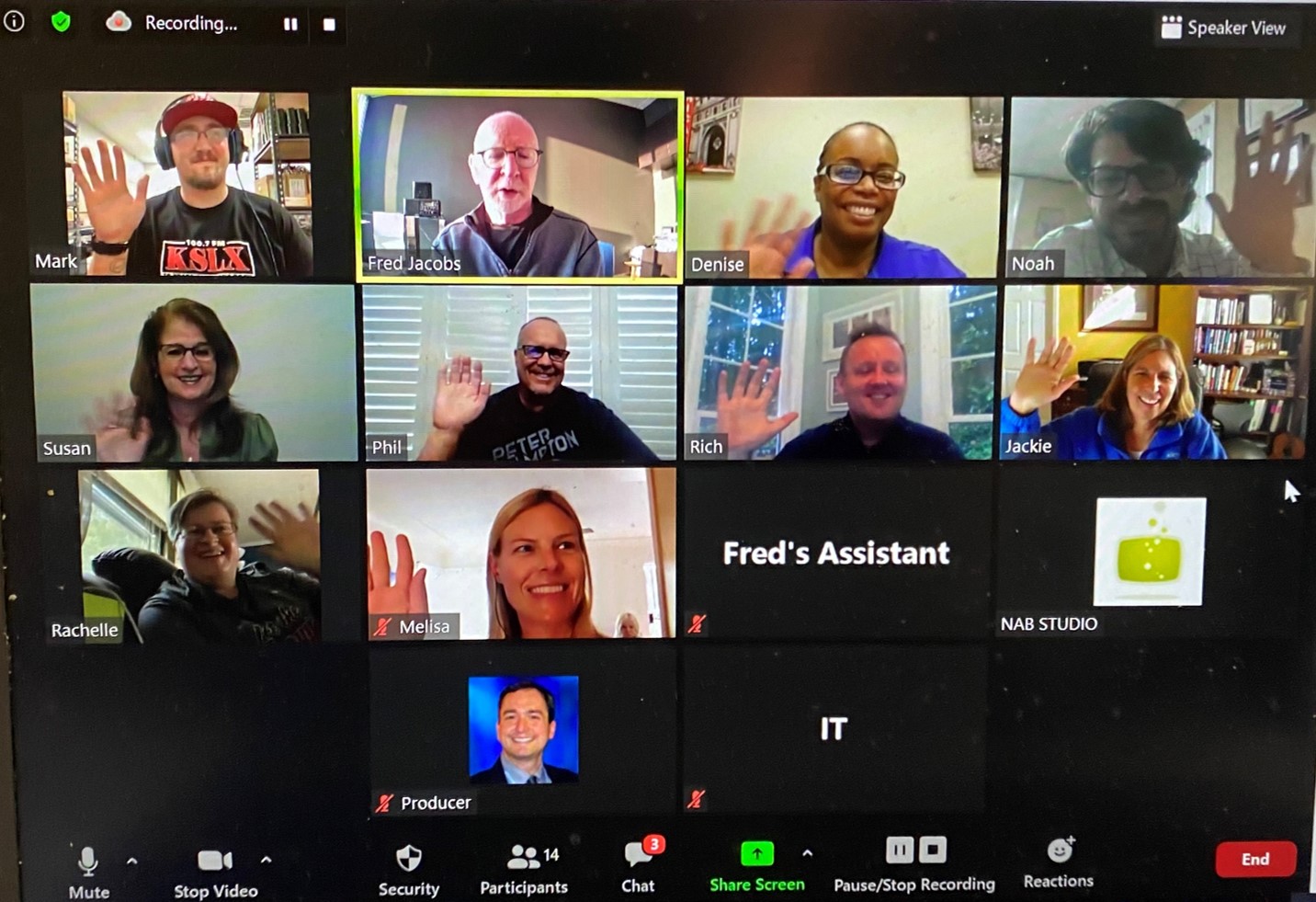
As I write this post, I’m reviewing data from our brand new “COVID 3” study, conducted among approximately 26,000 radio listeners across North America. The response from radio to participate was off the charts. The data is fresh – this third wave was fielded last week, and we’ve got a lot of sample to work with. All told, more than 340 stations sent our survey to their database members, far surpassing the first two installments. The results are stunning, and should provide valuable data to our “stakeholder” stations, as well as the entire industry.
(An industry webinar is scheduled next week, in partnership with the RAB. Info and registration is linked at the end of this post.)
We need data on COVID, and we need it now. Since the beginning of the pandemic, Nielsen has done a stellar job tracking radio listening, both in diary and PPM markets. Broadcasters can all quote the steady but too slow rise in the return of listening, especially “away from home” (cars and in the workplace). But as always been the case with ratings data, it offers few insights as to why things are happening.
At some point, listening levels will “normalize,” but that says little about the seismic changes in the lifestyles of Americans as a result of COVID. Whether you believe in a “new normal” or not, the reality is that our lifestyles, work patterns, entertainment habits, our purchasing patterns and so many other basics have inexorably changed. Most of us will never be quite the same again – or at least for the foreseeable future.
And neither will our institutions – our work, our homes, our social spaces, our places of worship – all forced to reassess, and in many cases, pivot and adjust.
These aren’t just minor disruptions – in many cases, the shifts are of the tectonic variety. They are real, and they impact our activities, our attitudes, our moods, our needs, and our relationships with others.
And that signifies that the ways in which we think about our radio and entertainment brands – and how they’re perceived by our target audiences – are changing, too.
So, what does that mean to radio broadcasters, as well as any of us who own, manage, or guide a company as we move into Q4 of the worst year ever?
I started contemplating answers to this question because of a recent story in The Drum by James Wood with an insightful title: “When it comes to your brand, do you stick or twist?”
His inspiration for this query is the outgoing editor of Campaign, a UK-based marketing publication. Claire Beale is its Global Editor in Chief – or at least she was, until  “redundancy” (the British term for termination, squeezed out, or reduction in force) left her without a seat in the game of executive musical chairs.
“redundancy” (the British term for termination, squeezed out, or reduction in force) left her without a seat in the game of executive musical chairs.
Before heading out the door, the prescient Beale left us with a great observational piece about where the world of brands and marketing is heading: “My love has always been for the people and the work.”
In it, she leaves us with this thought-provoking paragraph, something that should cause all of us to stop and consider how we maneuver our businesses heading into 2021:
“I don’t buy into the narrative that Covid will change everything forever. But 2020 is a significant turning point. Coronavirus, Black Lives Matter, political upheaval, economic crisis, environmentalism: lines are drawn in the sand. It’s time to ask whether you want to anchor in the antediluvian world: belt pulled tighter, managing decline, wishing things were as they used to be. Or surge into the new world, using upheaval to fundamentally reframe your business and your career.”
Many of us – whether running a company or looking for our next job – are “on hold.” We’re waiting – for a vaccine, for November 3rd, for 2021 – for something that will reset everything back to the way it was so we can get on with our lives, our careers, our retirements – our plans.
And so, the question Beale poses is rooted in great clarity. Are we simply willing to “ride this out,” cutting, slashing, and down-sizing our way into an uncertain future? Or do we want to eagerly hurdle into this moment of redefinition, reimagination, and repurpose, whether it’s your radio station, your career path, or your family matters?
 I believe that both historians and sociologists would tell us that along with a deadly virus, there’s much change in the air; that this time, it’s different.
I believe that both historians and sociologists would tell us that along with a deadly virus, there’s much change in the air; that this time, it’s different.
Pandemics come along once in a century or so. Well, here we are. And while it is difficult to know precisely how the Spanish Flu in 1918 disrupted lives, families, businesses, and entire countries, we know that it happened.
We also know that even with multiple video streaming services, lightning fast WiFi, savvy Artificial Intelligence, folding smartphones, and sleek electric cars, our lives are being indelibly altered right now today. The question is, what – if anything – are we willing to do to be proactive as we face our futures?
Interestingly, for displaced workers like Beale and the ones I speak to every week now, job loss has a way of ushering in perspective. Those who find themselves at a career crossroads during this time are forced to confront change, often in profound ways. And later in her essay, Beale makes this smart observation:
“Of course, some people – me included – have no choice but to reframe. But that’s fully enlivening, it grits the jaw for the challenge. All of the best CEOs and CMOs I’ve conferred with in the past few weeks are flexed for an evolutionary leap, skipping years of slow change and making bold bets on a new future. For anyone else who has found themselves out of a job, this is our moment to do the same.”
An “evolutionary leap,” indeed. That signals quantum change – not just a rebranding effort, but something bigger and more meaningful.
I am not suggesting that losing one’s job is a good thing. But in this maelstrom of industry chaos, dread, and the unknown, those who find themselves without a paycheck in 2021 must do some reflection about where they’re headed. To just look for a similar job in Des Moines, Detroit, or Denver is simply accepting more of the same. I don’t even want to think about how many of those who lost their positions these past several months were in these jobs for under a year, often uprooting themselves and their families. That should send a message that this chapter requires more than a few passing thoughts.
We’re not in Kansas anymore.
We’re in a very different place, and a new President or a spectacular pharmaceutical breakthrough isn’t going to change that fact.
So, what do you do?
Do you “stick” – running pretty much the same plays that got you to the dance pre-pandemic?
Or do you “twist” – take the opportunity to rethink, redefine, and maybe draw up an entirely new strategy for your station, your company, or your career.
Hold ’em? Fold ’em? Walk away? Run? Reinvent? Plunge forward?
Our hope is that our research can provide perspective and data to help radio broadcasters at all levels better and more clearly see the changing world around us. I’m excited to share the data with you at our RAB-partnered webinar on Monday, October 12. It’s for RAB members only, and registration information is below.
It will map out the degree of difficulty of these next couple months, as the most anomalous set of holidays take place. It’s about planning for the end of 2020 – and what’s next.
But tomorrow, I’ll be showing off something else. Think of it as the hors d’oeuvres: a Zoom focus group group comprised of 10 core radio listeners from all over the U.S. I conducted it last week for a session at the NAB/RAB Radio Show. In the group, we talked about their careers, their families, and their fears – as well as their media habits, their radio listening, and how things have changed these past difficult months.
It’s research with a “small r,” and I think you’ll find it to be an eye-opener. It’s one thing to survey hundreds – or even thousands of consumers. It’s another to listen to them.

It’s the combination of quantitative data and qualitative feedback that can help us better understand the landscape: how our listeners’ lives have changed, and how we can program and market to meet the moment.
We try to ask the best questions we can, using our small groups to inform our statistical studies. I hope that with both tools, we are able to capture this moment, not just for our careers but for ourselves.
“Stick” or “twist?”
Your call.
Our COVID 3 webinar in partnership with the RAB is Monday, October 12th at 1pm ET. Registration here.
Our NAB panel, “Who’s Zoomin’ Who? Using Video Chat As A Research Tool,” takes place Wednesday, October 7, 4:30-5:15pm ET as part of the Radio Show’s Channel A track. Info here.
- What To Do If Your Radio Station Goes Through A Midlife Crisis - April 25, 2025
- A 2020 Lesson?It Could All Be Gone In A Flash - April 24, 2025
- How AI Can Give Radio Personalities More…PERSONALITY - April 23, 2025




Since I was downsized 8 months ago, I can say that it was, as Ms. Beale so eloquently put it, “enlivening”. Honestly, the best thing that’s ever happened to me in my radio career. Working on what I know I’m good at now and not just going back to programming yet another radio station.
On the radio station side, I’ve listened, literally, daily, to one country radio station in every market, from numbers 1 to 110, for the past several months, and I’ve heard nothing but the same thing in most of those places. Apparently “stick” is the preferred formula. I would hope that we find more who can have the confidence, support and adventure to “twist” and create something really interesting and make listeners really notice radio again. That has to start at the top. I can tell you that the people inside are ready!!!!
You’re one of the best “twisters” out there. John. Thanks for chiming in on this tricky topic, AND good luck with the new gig with “Backstage Country.”
I recall working with a real estate broker who lamented the advent of home listings on the internet. Sitting behind his desk, he grabbed a copy of an old fashioned MLS Listing Book and said, “…it used to be I was the ONLY way someone could see what was for sale in the market. I controlled the entire access to inventory and the sales process. I want those days to come back!!!”
i wish I could be prescient enough to offer solutions for radio. What I can tell anyone who will listen is that we are a melting ice cube business as we do it today. It isn’t coming back. Looking forward to more ideas from you Fred…always lots of good debates…
Thanks for mixing it up with me, Jackson. It is forums like this that hopefully can help us find some “answers,” or at least, have a rewarding exchange in the process.